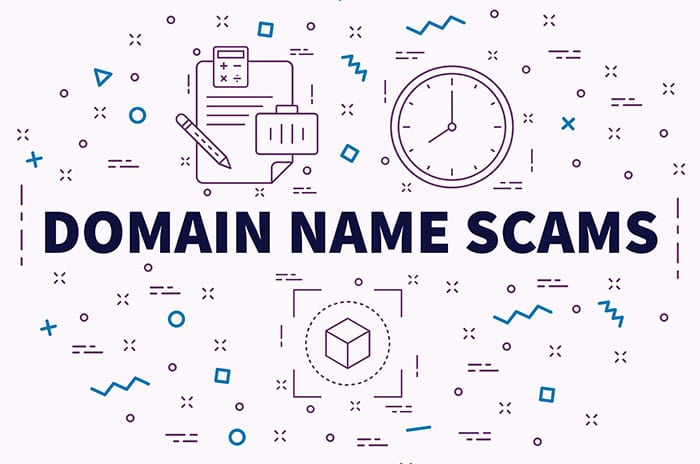Estimated Read Time: 3 Minutes
Your business website’s domain name is one of the most important parts of your brand. Customers use it to find you online, you place it in your marketing material, and it is a key factor when determining your organic search ranking.
Scammers know this, and that is why domain name scams are one of the most common we see business owners receive. In this month’s Vortex Marketing Blog, we’ll detail how to identify potential scams and protect your business.
What Is a Domain Scam?
A domain scam is when a malicious third party tries to take control of your business’ domain name. If someone controls your domain name, they can manipulate where users are sent when they visit your website.
The most common scam we see involves an email falsely claiming that your domain is expiring, and you need to renew it through their provided link. These can come in the form of official-looking invoices, urgent emails, or email addresses that look similar to common registrars like GoDaddy. We’ve even seen these delivered through traditional post!
While domain scams take different forms, the main defining characteristic is that they are impersonating your registrar in an attempt to gain control of your domain.
How to Protect Yourself
Now that you have an idea of what a domain scam looks like, there are a few important ways you can protect yourself.
The first is to know where your domain is registered. Most domains are registered through websites like GoDaddy, HostGator, Google, and Network Solutions. If you aren’t familiar with your registrar, this can be found by doing a WHOIS lookup of your website. If you have an IT manager for your business, they should also know.
The second is to know when your domain expires. This can be found through invoices from your registrar, or by logging directly into your registrar. As stated earlier, one common scam is to claim that your domain is expired and you need to renew it. If you know when your domain expires, you know that you can ignore these scam emails, many of which are far more expensive than the normal 15 to 18 dollars a year!
Most domain registrars also offer a domain privacy package, which hides your name and contact information when someone does a WHOIS look up. These are affordable, at around 10 to 15 dollars a year, and add an extra layer of security.
The third is a basic rule for email communication in general: don’t click links from email addresses you don’t recognize. Make sure to read the email address carefully, as many try to present as official sites like GoDaddy or Google.
Conclusion
Domain scammers have been around since the beginning of the internet, but through caution and vigilance, you can easily protect yourself from potential threats and getting ripped off.
Come back for next month’s post, where we will discuss SEO scams and ripoffs!Having security issues with your website? Vortex offers state of the art hosting and security services for all of our clients. Visit our website or call 319.621.0191 today!









